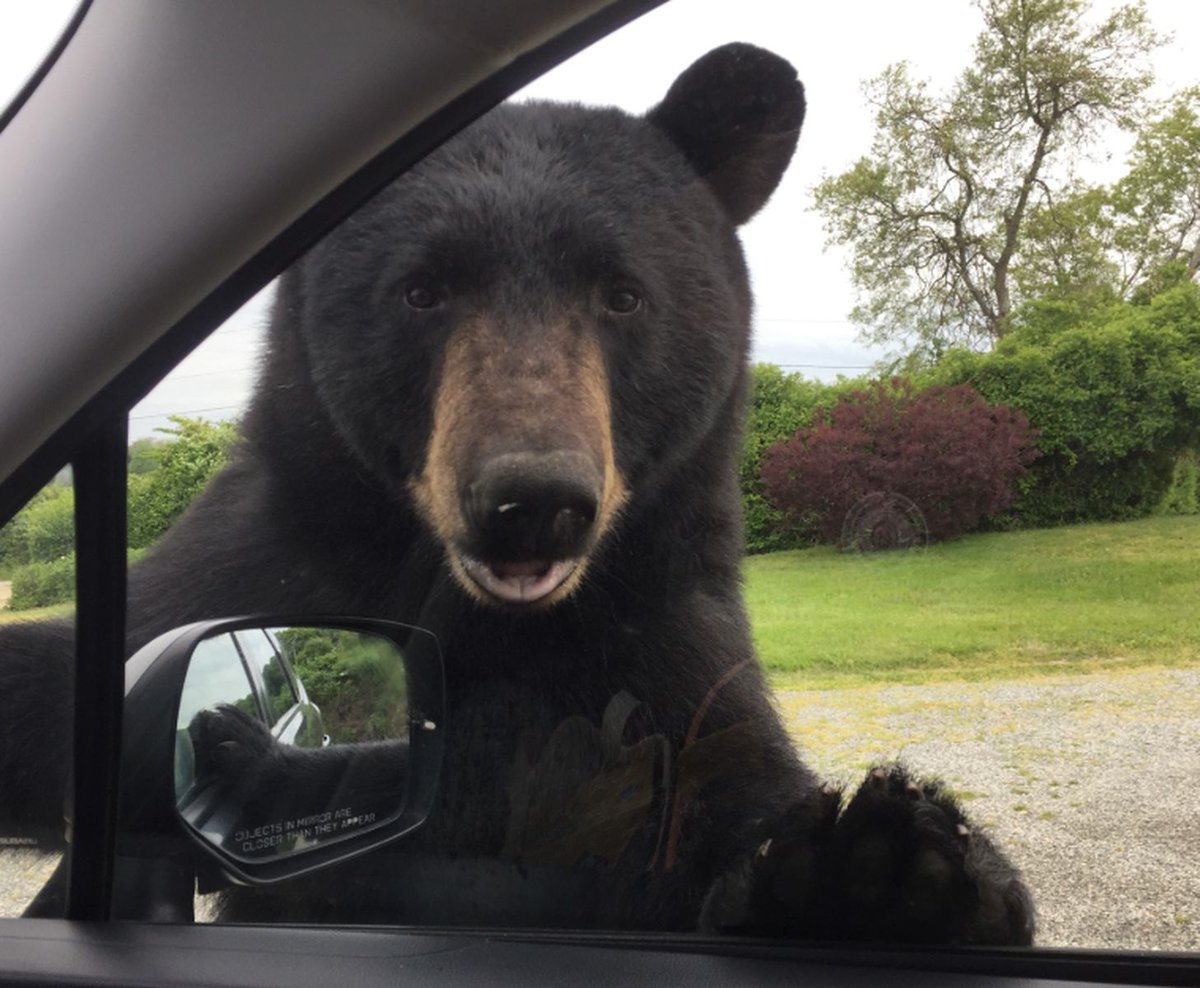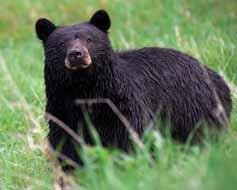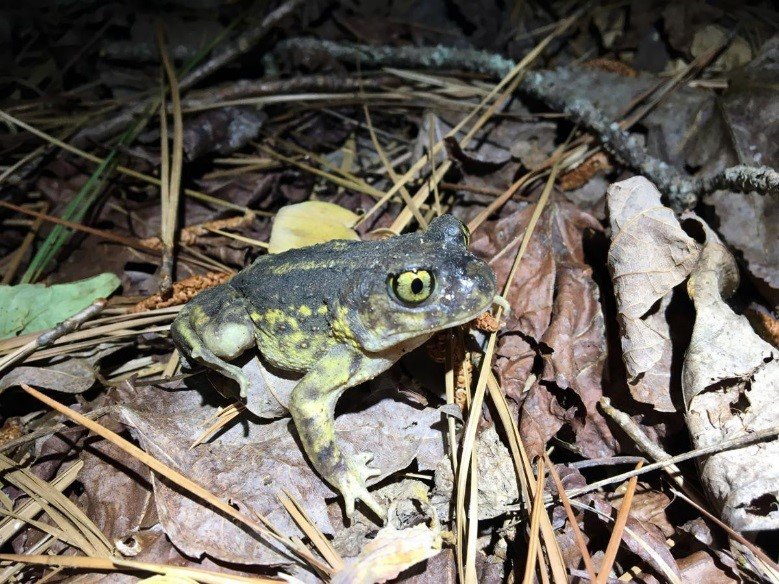It’s
spring time for critters
By
Will Collette
 |
| Hi! What's for lunch? |
In
recent days, we’ve gotten reports of black bear sightings (including one very
close encounter) in towns surrounding Charlestown, warnings that this will be
terrible tick season, cautions about turtles crossing local roads to reach
egg-laying areas and efforts to preserve dwindling populations of rare toads, and efforts to save indigenous frogs and toads.
I
have collected several of these stories and present them as a package as they
all come under the theme of learning to live with local wildlife.
First,
the bears. They have been spotted in the past few days in Narragansett and
Stonington. They are almost certainly here in Charlestown and across South
County. Let’s see what DEM advises us to do:
DEM
Reminds Residents to Prevent Nuisance Problems with Black Bears by Removing
Backyard Food Sources
 As
Rhode Island's itinerant bear or bears continue to roam throughout the state,
the Department of Environmental Management (DEM) today is reminding Rhode
Islanders that the best way to prevent an interaction – and to discourage black
bears from becoming nuisance animals – is to remove potential food sources such
as bird feeders from their properties.
As
Rhode Island's itinerant bear or bears continue to roam throughout the state,
the Department of Environmental Management (DEM) today is reminding Rhode
Islanders that the best way to prevent an interaction – and to discourage black
bears from becoming nuisance animals – is to remove potential food sources such
as bird feeders from their properties.
"There
is no reason for a bear to be close to houses unless there is something to eat
there," said DEM Wildlife Biologist Charlie Brown. "Almost every call
we get is related to bears taking down bird feeders. Be sure to remove your
bird feeders and other potential food sources from your yards."
Over
the past 10 days, DEM has received reports of sightings or seen photographs
posted by residents confirming the presence of a bear or bears in Coventry,
North Kingstown, and, most demonstrably, Narragansett, where a bear sauntered
up to the car of an animal control officer and peered into the passenger side
window yesterday.
Although it is likely that the bear making headlines is, in fact, just one bear, DEM cannot confirm this. DEM's Environmental Police Officers and wildlife biologists are working closely with local police and animal control officers to keep track of bear sightings and complaints.
Although it is likely that the bear making headlines is, in fact, just one bear, DEM cannot confirm this. DEM's Environmental Police Officers and wildlife biologists are working closely with local police and animal control officers to keep track of bear sightings and complaints.
 The
behavior exhibited by the bear yesterday in Narragansett "is that of a
habituated bear, one that has likely not had any negative stimulus from close
interaction from humans,"
The
behavior exhibited by the bear yesterday in Narragansett "is that of a
habituated bear, one that has likely not had any negative stimulus from close
interaction from humans," Brown said. In search of food Monday night, the bear took down bird feeders and put its paws on the deck door of a home in Narragansett.
Increasing
bear populations in Connecticut and Massachusetts have led to more frequent
sightings in Rhode Island – especially in rural areas of Providence, Kent, and
Washington counties.
As black bear populations continue to increase in neighboring states it is likely that the presence of bears in Rhode Island will become a more frequent occurrence.
As black bear populations continue to increase in neighboring states it is likely that the presence of bears in Rhode Island will become a more frequent occurrence.
Black
bears are generally shy and secretive, and usually fearful of humans; however,
if they become dependent on backyard food sources they can lose their fear and
become a nuisance.
Intelligent and adaptable, they learn quickly and adjust to the presence of humans.
They have a keen sense of smell and will investigate food odors; black bears may visit bird feeders, beehives, chicken coops, rabbit hutches, and compost piles in search of food.
They are opportunists, and it is this feeding behavior that attracts them to residential areas. Once a bear finds an accessible food source, it may routinely return to the same site or similar sites to feed.
Intelligent and adaptable, they learn quickly and adjust to the presence of humans.
They have a keen sense of smell and will investigate food odors; black bears may visit bird feeders, beehives, chicken coops, rabbit hutches, and compost piles in search of food.
They are opportunists, and it is this feeding behavior that attracts them to residential areas. Once a bear finds an accessible food source, it may routinely return to the same site or similar sites to feed.
It
is important to reduce the attractions that can make a bear a nuisance. Without
the food attractions, and left alone, a curious bear will usually wander back
into more secluded areas. DEM reminds the public to become "bear
aware" by:
o
Removing bird feeders by early April and waiting until early November to put
them up back up.
o Refraining from feeding pets outside, or if you do, taking pet food dishes inside at night. Storing birdseed, livestock feed, and garbage in buildings.
o Taking garbage out for pickup on the morning of collection – not the night before.
o Keeping barbecue grills clean of grease. Do not put meat or sweet food scraps in your compost pile.
o Using electric fencing around chicken coops, beehives, rabbit hutches, and livestock pens.
o Moving livestock into barns at night.
o Above all, DO NOT FEED BEARS.
These are wild animals. An adult male typically weighs between 150 and 450 pounds, while females generally weigh between 100 and 250 pounds. If a black bear is spotted on private property, people are advised to:
o Refraining from feeding pets outside, or if you do, taking pet food dishes inside at night. Storing birdseed, livestock feed, and garbage in buildings.
o Taking garbage out for pickup on the morning of collection – not the night before.
o Keeping barbecue grills clean of grease. Do not put meat or sweet food scraps in your compost pile.
o Using electric fencing around chicken coops, beehives, rabbit hutches, and livestock pens.
o Moving livestock into barns at night.
o Above all, DO NOT FEED BEARS.
These are wild animals. An adult male typically weighs between 150 and 450 pounds, while females generally weigh between 100 and 250 pounds. If a black bear is spotted on private property, people are advised to:
o
Report the sighting to DEM's Division of Law Enforcement at 222-3070. DEM is
working closely with local police to track bear sightings and complaints and
educate people on how to safely coexist with bears.
o Do not panic. Bears are rarely aggressive toward people and will often leave on their own. After the bear leaves the area, food sources or any other item of attraction should be removed from the yard.
o Do not run away if you surprise a bear. Walk away slowly while facing the bear.
In Rhode Island, black bears are protected animals. Intentionally feeding or shooting a bear is illegal. The following steps will minimize the potential for bears attacking livestock or apiaries:
o Do not panic. Bears are rarely aggressive toward people and will often leave on their own. After the bear leaves the area, food sources or any other item of attraction should be removed from the yard.
o Do not run away if you surprise a bear. Walk away slowly while facing the bear.
In Rhode Island, black bears are protected animals. Intentionally feeding or shooting a bear is illegal. The following steps will minimize the potential for bears attacking livestock or apiaries:
o
Use electric fencing around pens or paddocks to protect sheep and goats and
other small livestock.
o Move small livestock into barns at night.
o Secure grains and sweet feeds in buildings. o Use electric fencing to protect apiaries and chicken coops.
o Move small livestock into barns at night.
o Secure grains and sweet feeds in buildings. o Use electric fencing to protect apiaries and chicken coops.
For
more bear facts, visit DEM's website. For more information on DEM programs and
initiatives, visit www.dem.ri.gov. Follow us on Facebook at
www.facebook.com/RhodeIslandDEM or on Twitter (@RhodeIslandDEM) for timely
updates.
Turtles
June means Rhode Island’s native turtles will be laying eggs
very soon!
Turtles often have to cross roads to get to their nesting grounds which puts them at great risk of being hit by cars.
If you see a turtle in a road and want to help it across, you can do the following:
Turtles often have to cross roads to get to their nesting grounds which puts them at great risk of being hit by cars.
If you see a turtle in a road and want to help it across, you can do the following:
1. Keep yourself safe! Do not attempt to assist a turtle unless
the situation is 100% safe for you.
2. Determine which direction the turtle is moving and approach the turtle.
3. Lift the turtle from the shell and move it across the road in the direction it was headed. If possible, place a good way off the road. That’s it!
2. Determine which direction the turtle is moving and approach the turtle.
3. Lift the turtle from the shell and move it across the road in the direction it was headed. If possible, place a good way off the road. That’s it!
For snapping turtles you can grab the rear of the shell above
the hind legs. Gloves may be helpful. Never lift a snapping turtle by the tail!
And remember, never a take a turtle home! They are wild animals, not pets. Collection of native species is against the law (Title 250 3.7.C) and is punishable with substantial fines.
And remember, never a take a turtle home! They are wild animals, not pets. Collection of native species is against the law (Title 250 3.7.C) and is punishable with substantial fines.
Frogs
and toads
 Todd
McLeish, who writes wonderfully both for URI’s news bureau and EcoRI, reports
on efforts to preserve the populations of two species
of amphibian — the eastern spadefoot toad and northern leopard frog.
Todd
McLeish, who writes wonderfully both for URI’s news bureau and EcoRI, reports
on efforts to preserve the populations of two species
of amphibian — the eastern spadefoot toad and northern leopard frog. The toad is only found at one site in Richmond, and the northern leopard frog is found only on the border of Bristol and Warren.
Click on the links to read Todd’s full articles on the toad and the frog.
